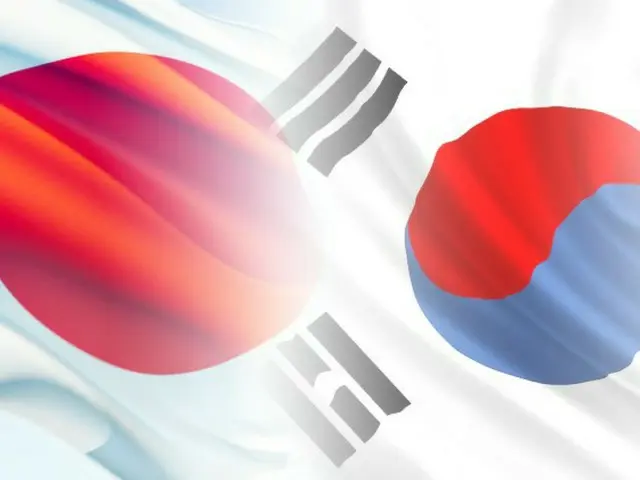"Although there are problems, our basic policy is to manage them so that they do not have a negative impact on other areas of cooperation. As ambassador, I will do my best to ensure active exchanges in various fields," he said.
The Lee Jae-myung administration, which took office in 2016, has been promoting "pragmatic diplomacy" that prioritizes national interests. With the inauguration of a new administration in South Korea, the South Korean ambassador to Japan has been the same since the previous ambassador, Park Cheol-hee, left his post in July of this year.
The position had been vacant until now. Ambassador Lee graduated from the Department of Economics at Korea University. In 1979, he passed the Foreign Service Higher Examination (the predecessor to the diplomatic candidate selection examination), and in the following year, 1980, he was appointed as the new Foreign Service Officer by the Ministry of Foreign Affairs (now the Ministry of Foreign Affairs, the Ministry of Foreign Affairs).
He has served as Director of the Asia-Pacific Bureau, Minister to Japan, Ambassador to the Philippines, and Ambassador to Vietnam, and until recently was the representative of the Korea-Japan Future Forum, an organization that promotes Japan-Korea exchanges.
He has worked in Japan three times in the past and is known as a Japan expert. In an interview at Haneda Airport on the 26th of last month, when he arrived in Tokyo, Lee said, "The Korea-Japan friendship and cooperation system that was fostered in the early days of the Lee Jae Myung administration
"I would like to make the most of this opportunity to do my best to ensure that relations between the two countries do not regress and progress further," he said. Currently, Japan-Korea relations are maintained in a good state, but there are still differences between the two countries regarding historical issues.
On the 13th of last month, a memorial service was held in Sado City, Niigata Prefecture for the workers of the Sado Island Gold Mine, a World Heritage Site, but the Korean side was absent.
During the war, former members of the Korean Peninsula were mobilized to make up for the labor shortage. The Korean side claimed that they had been forced to work there, and initially opposed the inscription of the "Sado Island Gold Mine" on the World Heritage List. However,
The government changed its stance to support the plan after Japan announced that it would hold an annual memorial service for all workers, including former members of the Korean Peninsula. As announced, the memorial service has been held every year, last year and this year.
However, for the second year in a row, the South Korean side was absent. Regarding the reason for not attending this year's memorial service held on the 13th of last month, a South Korean government official said that the content of the memorial speech was "regarding the forced labor issue."
"We were unable to find common ground in terms of concrete expression," he explained. When former Ambassador Park left his post in July this year, he also cited the conflict surrounding the memorial ceremony as the most difficult thing about his tenure.
Looking back at that time, Ku said the Japanese government had insisted on including the word "gratitude" in the name of the memorial. Park said, "A memorial ceremony must be a memorial ceremony. The format and content must be appropriate for a memorial ceremony."
The newly appointed ambassador to Japan, Lee, also mentioned historical issues in an interview with reporters last month, saying, "Of course, the Korean government
"We will respond strictly in accordance with our position," he emphasized. President Lee Jae-myung has built a good relationship with Prime Minister Shigeru Ishiba since taking office in June this year, but Ishiba will soon be stepping down.
The party's presidential election was held, and Takaichi Sanae was elected as the new president. Takaichi is likely to be nominated as the new prime minister at the extraordinary Diet session to be convened in the middle of this month. However, in South Korea, Takaichi is being criticized for her refusal to accept responsibility for historical issues and other matters.
When Takaichi was elected as the new president, the Korean media reported that "the hands of the clock in Japanese politics are turning back to the Abe (Shinzo) era, when Korea-Japan relations reached an all-time low."
"There are already concerns that this could lead to a breakdown in relations between South Korea and Japan," the JoongAng Ilbo reported, while Yonhap News reported that "this is likely to have a significant impact on the South Korea-Japan relationship, which had been ripe for cooperation."
Meanwhile, the South Korean presidential office stated that it would "continue to cooperate to maintain the positive trend (of Japan-South Korea relations)," and that there is no change in its policy to maintain good relations with the new prime minister.
President Lee has advocated "practical diplomacy centered on national interests." On the 2nd of this month, Ambassador Lee attended the National Foundation Day "Gaecheonjeol" (October 3rd) and "Armed Forces Day" (October 1st) held by the Korean Embassy in Tokyo.
At a reception commemorating the visit, he touched on the "shuttle diplomacy" between President Lee and Mr. Ishiba, and said he believes the Japan-Korea relationship is the best example of the "pragmatic diplomacy" advocated by President Lee.
"In the current rapidly changing global situation, I call for the governments, companies, and people of both Korea and Japan to consult and cooperate more widely than ever before," he said.
2025/10/14 10:55 KST
Copyrights(C)wowkorea.jp 2

